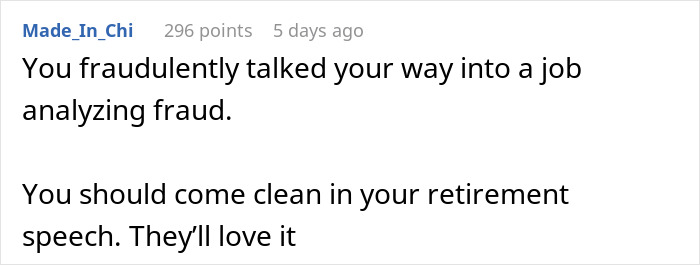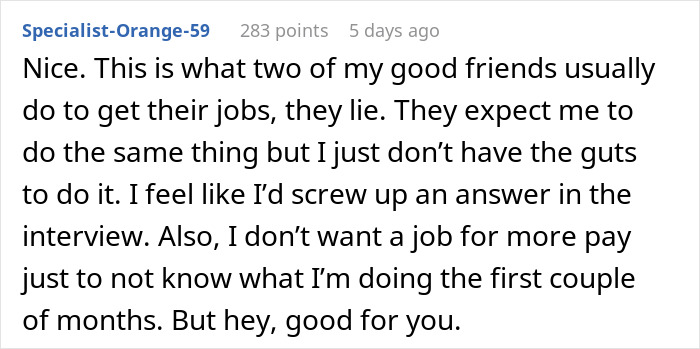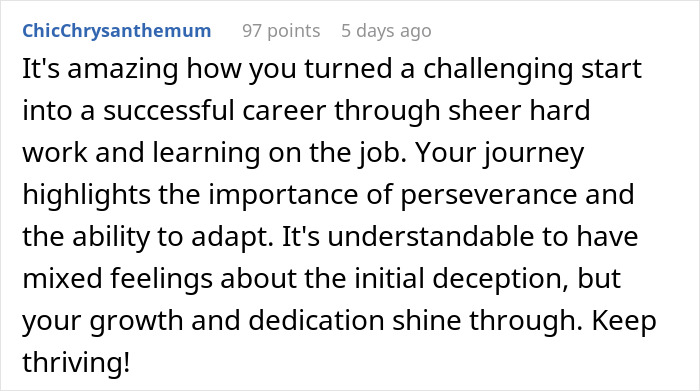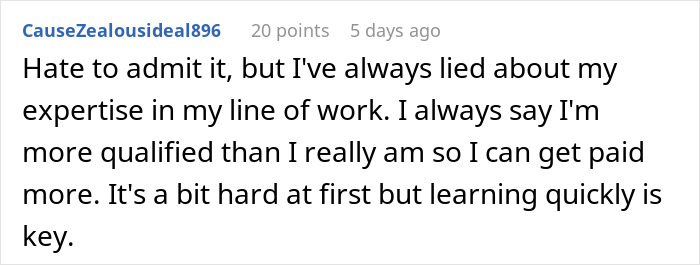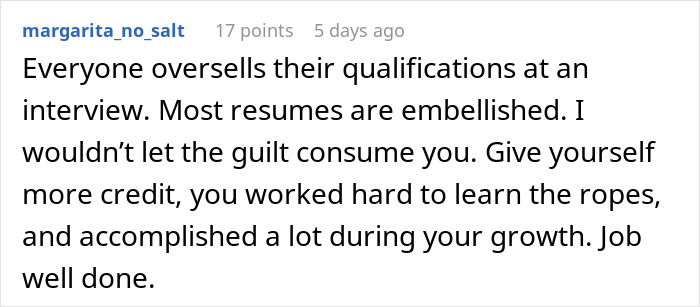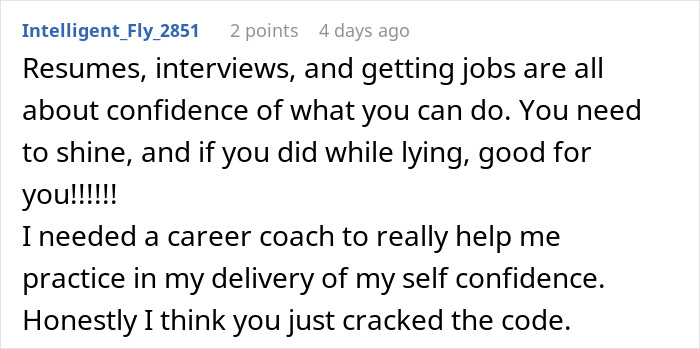Finding a good, well-paying job that matches a person’s qualifications has never been an easy task. With the fear of rejection, increased competition, and complicated hiring processes, sometimes it can even feel impossible. Therefore, to improve their chances of landing a job, some hunters are tempted to lie.
Just like redditor 7sixersV, who recently unveiled her secret after keeping it hidden for 15 years. Even though she got the job with the help of deception, she was happy to report that it laid the foundation for her extremely successful career.
For some, lying seems the only way to secure a job position in this competitive market

Image credits: Resume Genius / unsplash (not the actual photo)
Just like this woman, who decided to reveal her secret after keeping it hidden for 15 years
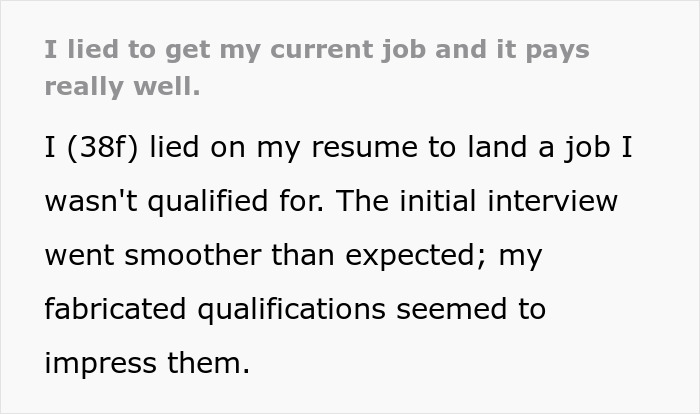
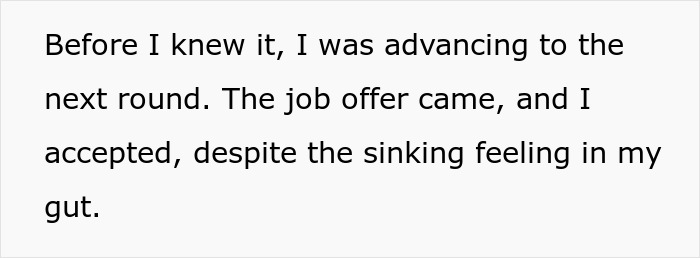

Image credits: Resume Genius / unsplash (not the actual photo)
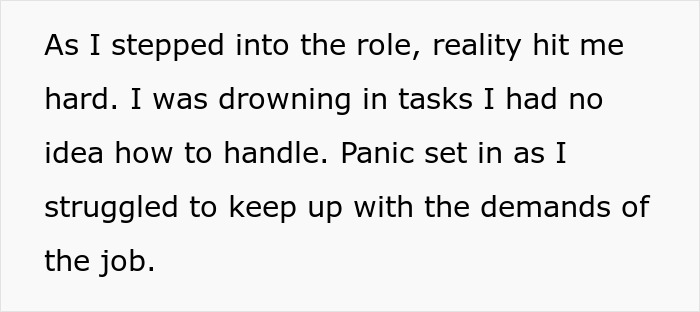



Image credits: Kaitlyn Baker / unsplash (not the actual photo)
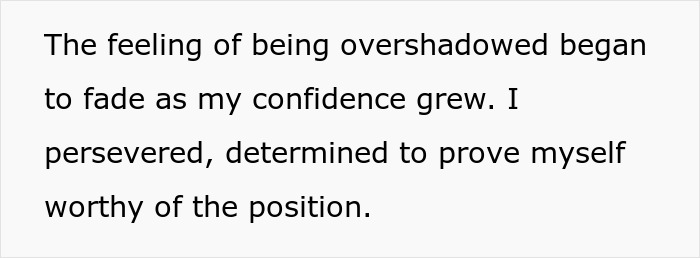
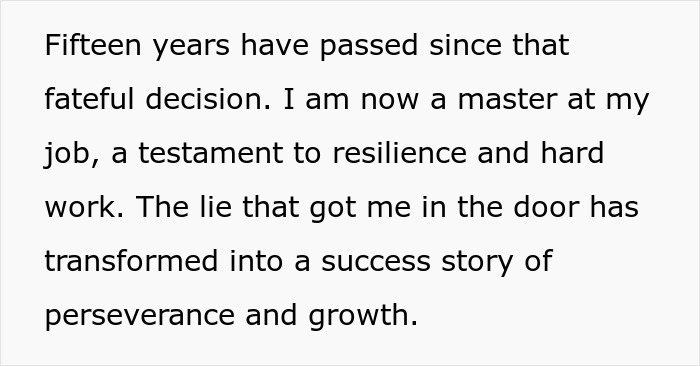
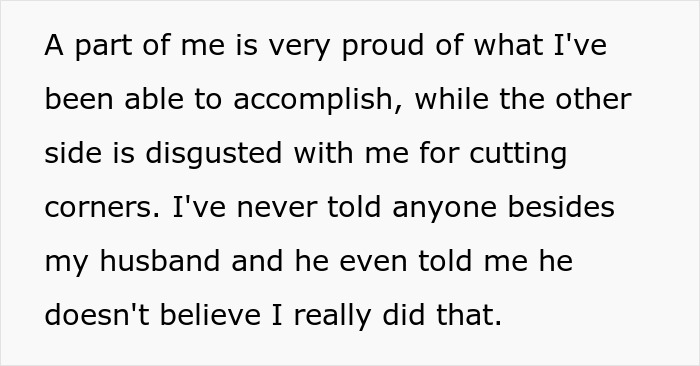

Image credits: 7sixersV
80% of workers have admitted to lying to secure a job
The original poster of this story is definitely not the only one who has lied during a job interview, as 2023 data shows that a whopping 80% of workers have admitted to doing so. More interestingly, this strategy is used more at face-to-face job interviews than in resumes or cover letters, with 70–76% saying they lied in written form.
ResumeLab, the company that conducted the survey, found that the top lies told on resumes were embellishing job titles and responsibilities (52%), exaggerating the number of people managed (45%), and overstating the length of employment (37%). 24% even went as far as making up the entire job position.
Resumelab career expert Agata Szczepanek says that lying on your resume is not only unethical but can backfire by resulting in rejection, losing out on other job opportunities, and damaging your reputation. “If you get caught, it might result in legal actions such as huge fines and in extreme cases even imprisonment,” she warns.
“Honesty is always the best policy when it comes to job applications and interviews,” emphasizes Szczepanek. “Even slightly stretching the truth can result in immediate or long-term consequences. Instead of lying about employment history, education or something more, workers should try shifting the focus to the related experience and transferable skills they can offer,” she states.
18.6% have never been caught lying on their resume

Image credits: cottonbro studio / pexels (not the actual photo)
According to the resume-building and career advice website, StandOut CV, only 18.6% have never been caught lying on their resume. Those who have were mostly uncovered before the job started during the interview process (31.5%). 12.7% said their embellishments were discovered after being offered the job, and only 4.3% reported being unmasked after having started working.
The most common reaction to lying was offer withdrawal (35.5%), while 19.9% received fines or salary adjustments. In general, more than 80% of workers selected for the job after being dishonest report completing the tasks without major issues.
However, the last statistic shouldn’t invite people to start lying to land a job, as in most cases, the consequences aren’t worth it. Instead, Szczepanek recommends putting time and effort into crafting strong application documents. They’re your first impression, and learning how to optimize them with the help of online guides and career experts can really up your chances.
Additional tips include getting to know the company’s values, showing off your ambition, and anything that reflects your willingness to grow, learn, and work. It’s also beneficial to emphasize your top skills, personality traits, and plausible work habits, relating everything to the position at hand. Lastly, be honest and enthusiastic. Try presenting yourself as a valuable employee, a colleague, and the most interesting person ever. Being authentic is often easier and worth more than trying to fabricate someone you’re not.
People in the comments applauded the author’s slickness


